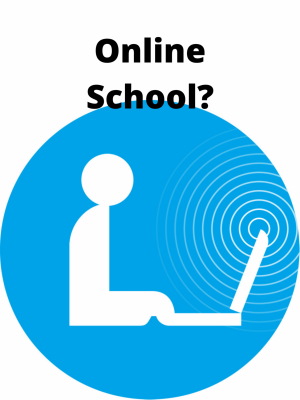Safety in Education
December 11, 2020
Before I go anywhere with this, I don’t see the point in not acknowledging the elephant in the room.
Most of us aren’t enjoying online school. It’s sometimes convenient to be at home during lunch and it’s nice to get extra sleep, but this is the thing: Nobody knows what they’re doing, teachers and students alike.
It is my perspective that some chaos revolving around our current situation is inevitable. We have all found ourselves in a situation where adaptation is crucial and inevitable, the only thing that’s plastic is its form.
What happens if we don’t go back in December? We just keep doing what we’ve been doing, which is undeniably the most health-conscious way of handling the situation (according to the CDC who sites online schooling as the lowest rick education plan and in school schooling as highest risk), seems to be trending towards working now that the administration and student body have settled in more. Whereas if we return in December, each student and administrator has to acclimate, not to school as it always was, but just as we are now an adaptation.
Starting over doesn’t seem like an ideal solution or way of adapting to what’s going on in the world right now, especially if we’re putting the health of students and faculty at risk. If you can imagine the structure of our school warped to fit in person covid regulations it doesn’t seem much simpler than what we have going on now. Spaced apart students, minimal interaction among peers, constantly wearing masks, and of course, covid outbreaks would all become part of daily academic life. This opposed to crashing computers and poor reception seems far more fragile, chaotic, and dangerous.
And what happens to students with health conditions or who just feel generally unsafe coming to school? Would they be subjected to a possibly lower standard of online schooling? If so, why would we hold students accountable when subjected to a standard of teaching they can’t control? The idea that more complications could arise with online learning is of course valid since complications are possible, but doesn’t stand up to the complications and risks of in-person schooling.
Finally, in addressing those who would advocate for in-person learning, any valid criticism would of course site the Center for Disease Control or other reputable sources who are the most reputable sources for the subject, and often they are sited. But what is sited are the descriptive elements of CDC studies or pieces. No one who tries to have a thorough understanding of a topic or is attempting to relay their own judgments should be taken seriously unless they are addressing the prescriptive elements of one of these pieces which will inevitably disagree with them. There is a materializing consensus of data saying we shouldn’t go back to school that needs to be recognized in order to actively address the problem in the safest and most reasonable way possible.

